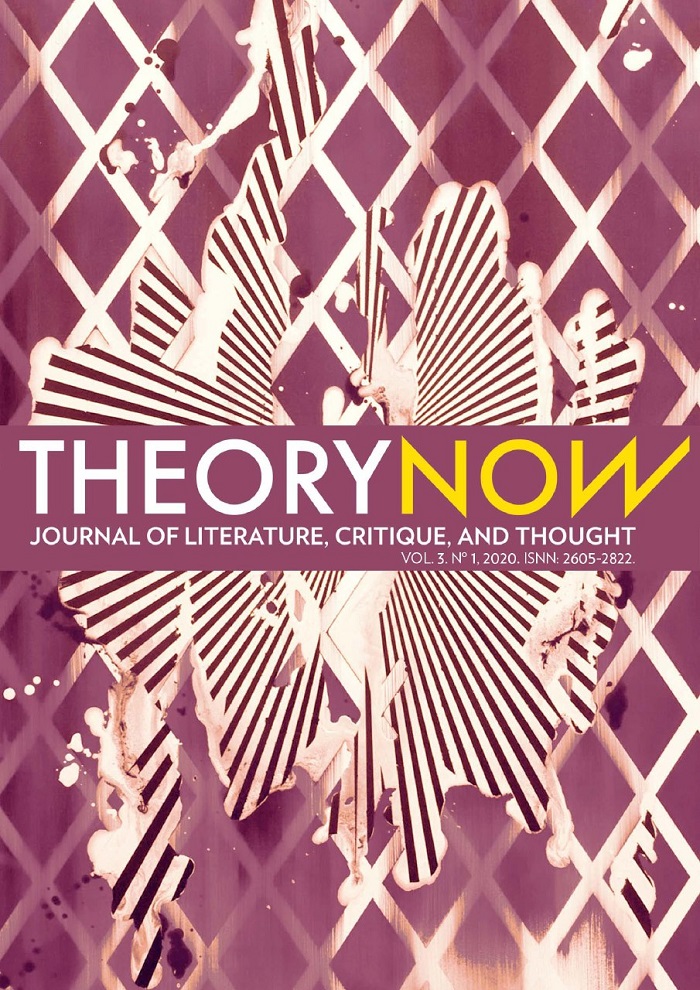'Speaking out' and the Scenes of Politics
DOI:
https://doi.org/10.30827/tnj.v3i1.11429Keywords:
“Speaking out” (“prise de parole”), glottopolitics, political subjectivation, Jacques Rancière, performativity, statement (énonciation).Abstract
In this paper we deal with the political dimension of glottopolitics through the notion of “speaking out” (“prise de parole”), i.e. a courageous statement that is taken in a political context, in which power relations are presupposed and questioned through acts of language. However, this does not mean that either language (langage) or languages (langues) can transform by themselves these power relations. From this point of view, we will approach Jacques Rancière’s perspective to show that speaking out cannot in any way be dissociated from the processes of political subjectivation of which it is part, or, more precisely, from the processes of subjectivation to which this speaking out is itself supposed to give rise. This constitutes an event which, by the same act, exceeds and saturates the pre-existing set of social and political determinations, and thus produces an interruption of power by opening a gap where the relationships between individuals or groups are no longer the same as before: this is precisely what, following Rancière, we must understand by “scenes of politics”.
Downloads
References
Bhabha, Homi K. “El mimetismo y el hombre. La ambivalencia del discurso colonial”, El lugar de la cultura. 1994. Traducido por César Aira. Buenos Aires, Manantial, 2002, pp. 111-120.
Castoriadis, Cornelius. « Pouvoir, politique, autonomie », Revue de Métaphysique et de morale, nº 93, 1988, pp. 81-104.
Certeau, Michel de. La toma de la palabra y otros escrítos políticos. 1968. Editado por Luce Giard, traducido por Alejandro Pescador. México, Universidad Iberoamericana, 1995.
Freund, Julien. La esencia de lo político. 1965. Editado por Jernónimo Molina Cano, traducido por Sofía Nöel. Madrid, Centro de Estudios Políticos y Constitucionales, 2018.
Gauchet, Marcel. L’avènement de la démocratie. París, Gallimard, 4 t., 2007-2017.
Guespin, Louis et Jean-Baptiste Marcellesi. « Pour la glottopolitique », Langages, nº 83, 1986, p. 5-34.
Gramsci, Antonio. Cuadernos de la cárcel, Tomo 6. 1975. Editado por Valentino Gerratana, traducido por Ana María Palos. México, Ediciones Era, 1999.
Irrera, Orazio y Daniele Lorenzini (eds.) Número especial « Prises de parole : les discours subalternes » (contribuciones de P. Sabot, G. Le Blanc, P. Vermeren, K. Genel, O. Irrera y D. Lorenzini), Raisons politiques, nº 68, 2017, pp. 5-82.
Irrera, Orazio y Daniele Lorenzini. « Prises de parole. L’indocilité des discours subalternes », Raisons politiques, nº 68, 2017a, pp. 5-8.
Irrera, Orazio et Daniele Lorenzini. «Briser le silence. La prise de parole entre infrapolitique et parrêsia », Raisons politiques, nº 68, 2017b, pp. 65-82.
Lefort, Claude. La invención democrática. 1981. Buenos Aires, Nueva Visión, 1990.
Rancière, Jacques. La noche de los proletarios. Archivos del sueño obrero. 1981. Buenos Aires, Tinta Limón, 2010.
___. Essais sur le politique (XIXè-XXè siècles). París, Le Seuil, 1986.
___. Écrire ; à l’épreuve du politique, París, Calmann-Lévy, 1994.
___. El desacuerdo. 1995. Traducido por Horacio Pons. Buenos Aires, Nueva Visión, 1996.
___. Les scènes du peuple. Les Révoltes logiques 1975/85. Lyon, Horlieu, 2003.
Schmitt, Carl. El concepto de lo político. 1932. Traducido por Rafael de Agapito Serrano. Madrid, Alianza, 2014.
Downloads
Published
How to Cite
Issue
Section
License
Theory Now. Journal of Literature, Critique, and Thought is an immediate open-access publication which is available at no cost for readers and authors alike. Authors are not charged any kind of fee for the editorial processing of their articles. Reading, downloading, copying, distributing, printing, searching, linking or reusing all published articles for non-commercial uses is allowed on the condition of citing the author, the journal and the editing body. All intellectual material published in this journal is protected under a Creative Commons Attribution-NonCommercial 3.0 Spain license.
Dissemination of the articles in social (Facebook, Twitter, Linkedin, etc.) and scientific networks (ResearchGate, Academia.edu, etc.), public repositories at universities and other institutions, blogs, personal or institutional websites, Google Scholar, ORCID, ResearchID, ScopusID, etc. is strongly encouraged. In all cases, the intellectual property of the articles and any possible monetary profits derived from them belong exclusively to the authors.













